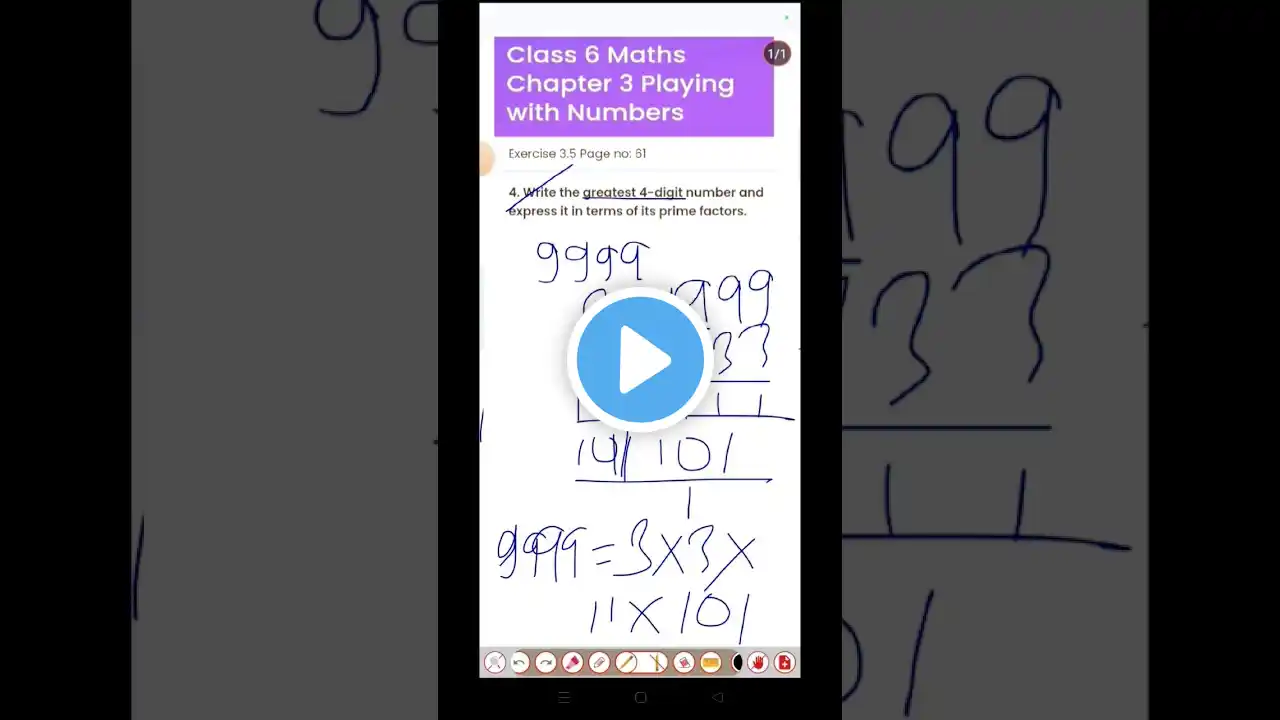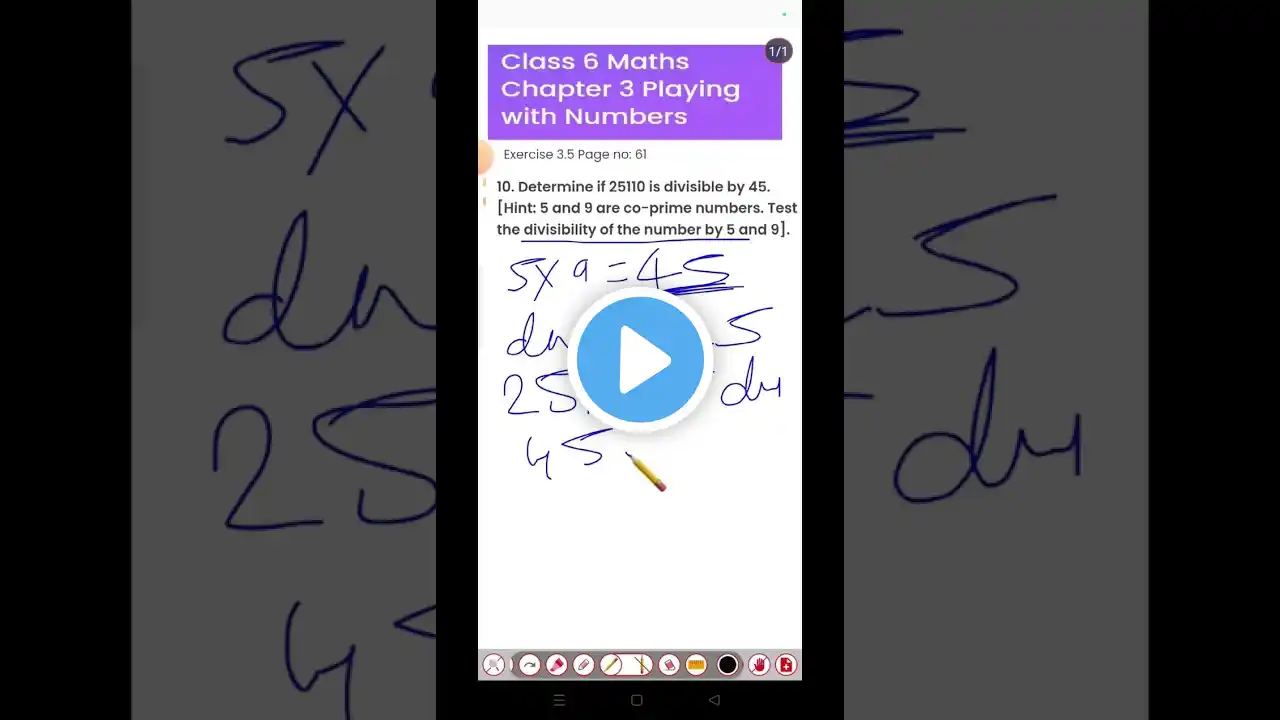
Class 6 Maths Chapter 3 l NCERT EXERCISE-3.5 l Playing with Numbers l CBSE Board l Solution#shorts
Class 6 Maths NCERT Chapter 3 Playing with numbers Exercise 3.5 Full Solved | #class6 #studybird  Studybird Welcome to Studybird In this video we will be discussing CBSE class 6 Maths Chapter 3 Playing with numbers Exercise 3.5 Full Solved 1. Which of the following statements are true? (a) If a number is divisible by 3, it must be divisible by 9. (b) If a number is divisible by 9, it must be divisible by 3. (c) A number is divisible by 18, if it is divisible by both 3 and 6. (d) If a number is divisible by 9 and 10 both, then it must be divisible by 90. (e) If two numbers are co-primes, at least one of them must be prime. (f) All numbers which are divisible by 4 must also be divisible by 8. (g) All numbers which are divisible by 8 must also be divisible by 4. (h) If a number exactly divides two numbers separately, it must exactly divide their sum. (i) If a number exactly divides the sum of two numbers, it must exactly divide the two numbers separately. 2. Here are two different factor trees for 60. Write the missing numbers. 3. Which factors are not included in the prime factorisation of a composite number? 4. Write the greatest 4-digit number and express it in terms of its prime factors. 5. Write the smallest 5-digit number and express it in the form of its prime factors. 6. Find all the prime factors of 1729 and arrange them in ascending order. Now state the relation, if any; between two consecutive prime factors. 7. The product of three consecutive numbers is always divisible by 6. Verify this statement with the help of some examples. 8. The sum of two consecutive odd numbers is divisible by 4. Verify this statement with the help of some examples. 9. In which of the following expressions, prime factorisation has been done? (a) 24 = 2 × 3 × 4 (b) 56 = 7 × 2 × 2 × 2 (c) 70 = 2 × 5 × 7 (d) 54 = 2 × 3 × 9 10. Determine if 25110 is divisible by 45. 11. 18 is divisible by both 2 and 3. It is also divisible by 2 × 3 = 6. Similarly, a number is divisible by both 4 and 6. Can we say that the number must also be divisible by 4 × 6 = 24? If not, give an example to justify your answer. 12. I am the smallest number, having four different prime factors. Can you find me? ______________________________________________________ Class 6 Maths chapterwise Playlist 👉Chapter-1 Knowing our Numbers:  • Class 6 Maths Chapter-... 👉Chapter-2 Whole Number:  • Class 6 Maths Chapter-... 👉Chapter-3 Playing with Numbers: . 👉Chapter- To watch videos of other subjects, click the link given below: 👉Class 6 Science: 👉Class 6 Maths:  • Class 6 Maths Playing with numbers playing with numbers exercise 3.5 class 6 maths ncert exercise 3.5 solved class 6 maths ncert exercise 3.5 question number 1 solved class 6 maths ncert exercise 3.5 question number 2 solved class 6 maths ncert exercise 3.5 question number 3 solved class 6 maths ncert exercise 3.5 question number 4 solved class 6 maths ncert exercise 3.5 question number 5 solved class 6 maths ncert exercise 3.5 question number 6 solved class 6 maths ncert exercise 3.5 question number 7 solved class 6 maths ncert exercise 3.5 question number 8 solved class 6 maths ncert exercise 3.5 question number 9 solved class 6 maths ncert exercise 3.5 question number 10 solved class 6 maths ncert exercise 3.5 question number 11 solved #class6 #class6maths #playing_with_numbers #studybird #study


















